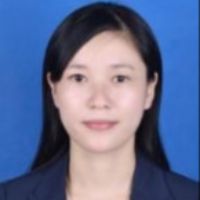Simulation, Optimization and Application of Welding Process
A special issue of Processes (ISSN 2227-9717). This special issue belongs to the section "Manufacturing Processes and Systems".
Deadline for manuscript submissions: 31 May 2024 | Viewed by 2983
Special Issue Editors
Interests: welding
Interests: characterization of welded joints by conventional and advanced (neutron and synchrotron) techniques; optimization of welding mode parameters; wire arc additive manufacturing of high entropy alloys
Special Issue Information
Dear Colleagues,
The study and development of welding techniques in the aerospace, automobile, and electronic packaging industries have been ongoing for many years. The welding process plays an essential role in the joining quality of separated components; however, the temperature evolution, welding mechanisms, and control of the welding process still require further investigations. With the advancement of computer science, simulations of welding processes have developed rapidly. Numerical simulations enable the visual simulation of the temperature distribution at the faying interface, which is favorable for predicting the weld area and joint strength. Research on the optimization of the welding process based on simulation and practice has attracted significant interest; it provides us with novel design concepts, welding flexibility, and rapid estimations of weld quality. The welding process can be applied to various materials, including metals, polymers, ceramics, etc. Studies involving the simulation, optimization, and application of welding processes have a profound significance for manufacturing industries.
This Special Issue will provide readers with the latest progress in the simulation, optimization, and application of welding processes in materials, ranging from fundamentals to phenomena, from the macro- to the micro-scale.
Contributing papers are solicited in the following areas:
- Numerical modeling of welding processes;
- Simulation and experimental studies of welding processes;
- Investigations into the temperature field and welding mechanisms;
- Optimization of welding processes;
- Application of welding processes in specific situations.
Dr. Qian Zhi
Dr. Rogante Massimo
Guest Editors
Manuscript Submission Information
Manuscripts should be submitted online at www.mdpi.com by registering and logging in to this website. Once you are registered, click here to go to the submission form. Manuscripts can be submitted until the deadline. All submissions that pass pre-check are peer-reviewed. Accepted papers will be published continuously in the journal (as soon as accepted) and will be listed together on the special issue website. Research articles, review articles as well as short communications are invited. For planned papers, a title and short abstract (about 100 words) can be sent to the Editorial Office for announcement on this website.
Submitted manuscripts should not have been published previously, nor be under consideration for publication elsewhere (except conference proceedings papers). All manuscripts are thoroughly refereed through a single-blind peer-review process. A guide for authors and other relevant information for submission of manuscripts is available on the Instructions for Authors page. Processes is an international peer-reviewed open access monthly journal published by MDPI.
Please visit the Instructions for Authors page before submitting a manuscript. The Article Processing Charge (APC) for publication in this open access journal is 2400 CHF (Swiss Francs). Submitted papers should be well formatted and use good English. Authors may use MDPI's English editing service prior to publication or during author revisions.
Keywords
- welding
- simulation
- welding evolution
- optimization
- microstructure
- weld quality






